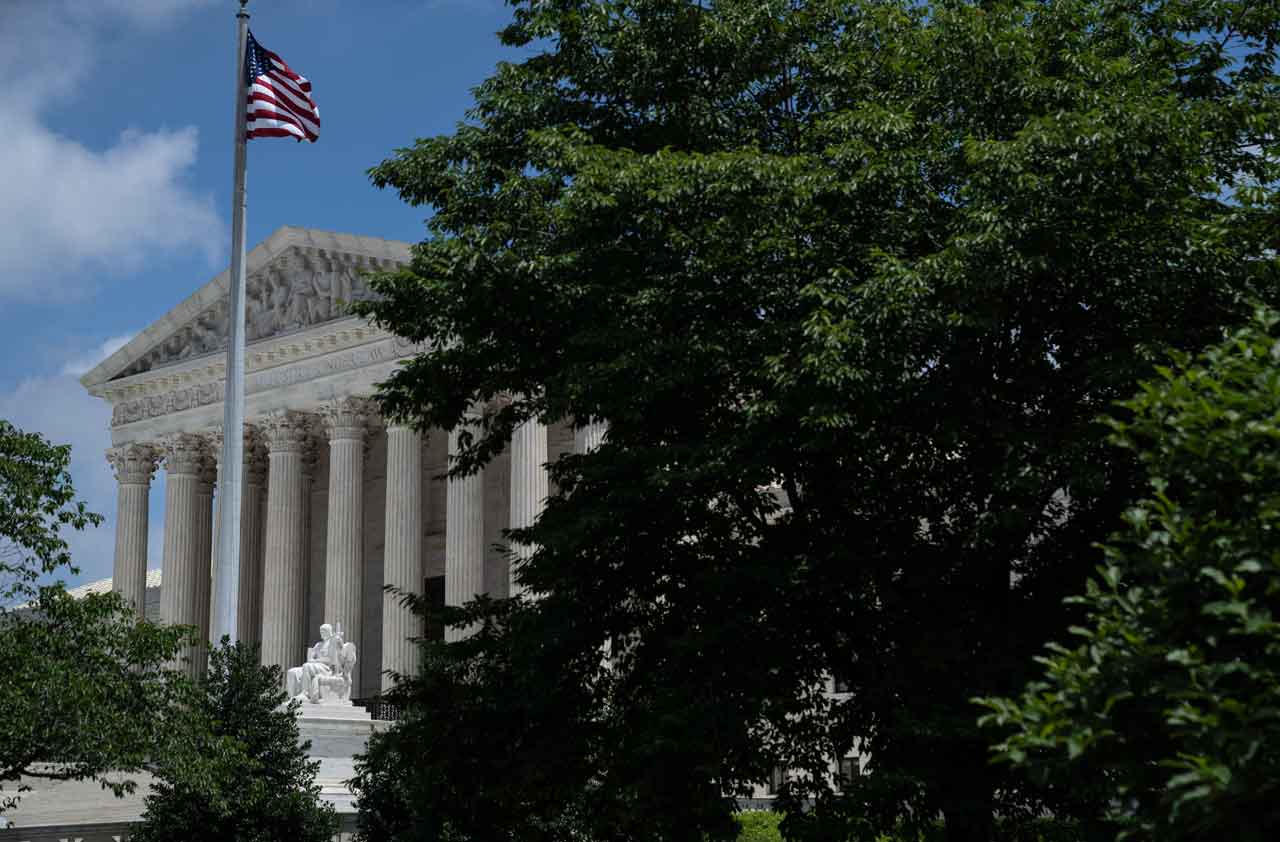Predicting Elections With the Economy: More Art Than Science
When it comes to presidential elections, is it really the economy that matters?

Profit and prosper with the best of Kiplinger's advice on investing, taxes, retirement, personal finance and much more. Delivered daily. Enter your email in the box and click Sign Me Up.
You are now subscribed
Your newsletter sign-up was successful
Want to add more newsletters?

Delivered daily
Kiplinger Today
Profit and prosper with the best of Kiplinger's advice on investing, taxes, retirement, personal finance and much more delivered daily. Smart money moves start here.

Sent five days a week
Kiplinger A Step Ahead
Get practical help to make better financial decisions in your everyday life, from spending to savings on top deals.

Delivered daily
Kiplinger Closing Bell
Get today's biggest financial and investing headlines delivered to your inbox every day the U.S. stock market is open.

Sent twice a week
Kiplinger Adviser Intel
Financial pros across the country share best practices and fresh tactics to preserve and grow your wealth.

Delivered weekly
Kiplinger Tax Tips
Trim your federal and state tax bills with practical tax-planning and tax-cutting strategies.

Sent twice a week
Kiplinger Retirement Tips
Your twice-a-week guide to planning and enjoying a financially secure and richly rewarding retirement

Sent bimonthly.
Kiplinger Adviser Angle
Insights for advisers, wealth managers and other financial professionals.

Sent twice a week
Kiplinger Investing Weekly
Your twice-a-week roundup of promising stocks, funds, companies and industries you should consider, ones you should avoid, and why.

Sent weekly for six weeks
Kiplinger Invest for Retirement
Your step-by-step six-part series on how to invest for retirement, from devising a successful strategy to exactly which investments to choose.
"It's the economy, stupid" has become accepted wisdom in the 20 years since it guided Bill Clinton’s 1992 campaign, reminding staffers to focus on this issue over all others. And in fact, there's a huge volume of economic research to back up the assertion; various mathematical models use the performance of the economy to predict vote totals, often successfully.
SEE ALSO: Why Romney and Obama Are Already Fighting
But things aren't so simple, for two reasons. First, it's usually not the actual state of the economy, but how voters perceive it that can sway them to pull one lever or another in the voting booth. In 1992, the economy was already on the upswing, well into a period of recovery and growth, when Clinton made President George H.W. Bush a one-termer. But most voters didn't recognize that yet.
From just $107.88 $24.99 for Kiplinger Personal Finance
Become a smarter, better informed investor. Subscribe from just $107.88 $24.99, plus get up to 4 Special Issues

Sign up for Kiplinger’s Free Newsletters
Profit and prosper with the best of expert advice on investing, taxes, retirement, personal finance and more - straight to your e-mail.
Profit and prosper with the best of expert advice - straight to your e-mail.
The second reason that voters should beware of economic research cited by talking heads: No matter how sophisticated, the mathematical models have major limitations, and those limitations are too often ignored. Predictions are presented as a lot more authoritative than the authors of them intended.
Take the observation that no incumbent president since Franklin Roosevelt has won a second term when unemployment was higher than 7.2%. That's often presented as a Mt. Everest-size challenge for President Obama, since almost no one believes that unemployment -- now 8.5% -- will be anywhere close to 7.2% on Election Day.
But a closer look reveals that the maxim is pretty useless, because the data set used -- the 10 times that an incumbent has run for election since Roosevelt -- is simply too small. The critical threshold is based on a single outlying data point: the 7.2% unemployment rate when Ronald Reagan won reelection by a landslide in 1984. If that one case is excluded -- not an unreasonable move in statistical terms -- the “rule” would be that presidents aren’t reelected if the unemployment rate is over 5.4%, the next-highest rate at which an incumbent was returned to the Oval Office and clearly a very healthy jobless rate. There just aren't enough data to draw a reasonable conclusion.
Likewise, the change in unemployment during a president's first term doesn't help forecast election results. Richard Nixon was first elected by a razor-thin margin when unemployment was 3.4%, and then reelected by a landslide in 1972, when it had risen to 5.3%. Jimmy Carter delivered a drop in unemployment, from 7.8% to 7.5%, but voters gave him the boot.
There are more sophisticated models to predict election results from the state of the economy, using changes in gross domestic product during the incumbent's first term and in the months just before Election Day, for example. Another method looks at gains in per capita, after-tax income. Some combine multiple elements. But in addition to the small data set problem, they often share some other shortcomings:
•Ceteris paribus. This bit of Latin, meaning "all other things equal," is a loophole large enough to fly Air Force One through. When election prediction models assume that only economic conditions are changeable and all else remains the same, it means that the state of the economy is equally important to voters from one election year to another. That obviously isn't true. Economic policy in the year before Richard Nixon's 1972 reelection was dramatic and controversial; wage and price controls jacked up unemployment while helping to tame inflation. But election results had almost nothing to do with the economy. Instead, voters focused on Vietnam and school desegregation. Lyndon Johnson held on to the White House in 1964 in the midst of an economic boom, but the election was dominated by civil rights, Cold War jitters, and the still fresh wound of the Kennedy assassination. Ronald Reagan was reelected in 1984, despite a high unemployment rate, because he made voters feel good about America's place in the world.
•Tailoring the parameters. Why do most models correlating economic performance with presidential election results start in 1948 or 1952? Partly because, with one exception, elections for 24 years before then don't support the theories. The 1948 election, for example, puts the lie to a correlation of election outcomes with per capita income. Over the four years of Truman's first term, income dropped, yet he beat Thomas Dewey. In 1944, years of income gains predicted that Roosevelt would get 66% of the popular vote, instead of 54%. And during the Depression, when economic policy was arguably even more important to voters than it is today, there's little or no correlation.
Economists justify starting with elections just 60 or so years back, saying that the unique circumstances of the Great Depression, World War II and its aftermath don't allow a valid comparison to recent times. But that argument looks much less persuasive after a financial crisis and recession frequently compared to the 1930s and a decade of expensive war.
•Party and policy over the candidate. Most models assume that people vote for a party and for that party's economic policies, so in a race without incumbents --1952, 1960, 1968, 1988, 2000 and 2008 -- the candidate of the party already in the White House gets the credit or blame for the current president's policies. But presidential races, especially those with two new faces, are often dominated by personal qualities and not policies. Harry Truman's legacy to Adlai Stevenson, his party's candidate in 1952, was the unpopular move to break industrial strikes. But people didn't vote for Dwight Eisenhower over Stevenson because they expected a change in this labor policy. They chose Ike as the reassuring D-Day commander. Michael Dukakis' lack of charisma had more to with George H.W. Bush's victory than the thriving 1988 economy under Reagan. In some cases -- Nixon in 1972, Reagan in 1984 and, arguably, Barack Obama in 2008 -- very weak opponents contributed to their wins.
Economists are careful to admit the limitations of their models, even if pundits aren't. Douglas Hibbs, author of one of the best-known models, says his forecast is less reliable than Intrade, the odds-making service that this week gives Obama a 52% chance of reelection. Hibbs gives Obama only a 44% shot. At Kiplinger, we give Obama the edge -- at least for now. That's partly because we think the economy will improve somewhat between now and November, and that voters' perception will be that it is on the upswing. But the ideological fracture in the Republican Party plays a big role as well. It'll be tough for a party so splintered to unseat a sitting president.
Profit and prosper with the best of Kiplinger's advice on investing, taxes, retirement, personal finance and much more. Delivered daily. Enter your email in the box and click Sign Me Up.

-
 Dow Adds 1,206 Points to Top 50,000: Stock Market Today
Dow Adds 1,206 Points to Top 50,000: Stock Market TodayThe S&P 500 and Nasdaq also had strong finishes to a volatile week, with beaten-down tech stocks outperforming.
-
 Ask the Tax Editor: Federal Income Tax Deductions
Ask the Tax Editor: Federal Income Tax DeductionsAsk the Editor In this week's Ask the Editor Q&A, Joy Taylor answers questions on federal income tax deductions
-
 States With No-Fault Car Insurance Laws (and How No-Fault Car Insurance Works)
States With No-Fault Car Insurance Laws (and How No-Fault Car Insurance Works)A breakdown of the confusing rules around no-fault car insurance in every state where it exists.
-
 U.S. Manufacturing Is Already Ailing from Coronavirus
U.S. Manufacturing Is Already Ailing from CoronavirusEconomic Forecasts Supplies are hard to come by, and in the longer-term demand may be at risk.
-
 Will You Have to Pay More Sales Taxes on Your Online Purchases?
Will You Have to Pay More Sales Taxes on Your Online Purchases?business One thing’s for sure: Consumers who live in one of the five states without a sales tax won’t be affected by the Supreme Court’s ruling.
-
 What to Expect From the New Fed Chief
What to Expect From the New Fed ChiefEconomic Forecasts By and large, Jerome Powell will move along the path set by his predecessor.
-
 How a Border Tax Would Affect You
How a Border Tax Would Affect YouBusiness Costs & Regulation A plan to limit imports could raise prices but also create more jobs.
-
 A Housing Shortage Looms: Builders Can’t Keep Up
A Housing Shortage Looms: Builders Can’t Keep Upbusiness Starter homes especially are becoming scarce.
-
 Help Wanted in America: Skilled Workers
Help Wanted in America: Skilled WorkersTechnology In an ever-more-competitive job market, technology increases the need for skilled workers.
-
 The Unintended Consequences of a Boost in Overtime Pay
The Unintended Consequences of a Boost in Overtime PayBusiness Costs & Regulation New rules mean millions more employees will be overtime-eligible. But will employers find workarounds?
-
 U.S. Economy to Perk Up in Second Half
U.S. Economy to Perk Up in Second HalfEconomic Forecasts Consumers are recovering from a swoon induced by a wobbly stock market. But energy, other sectors will continue to struggle.